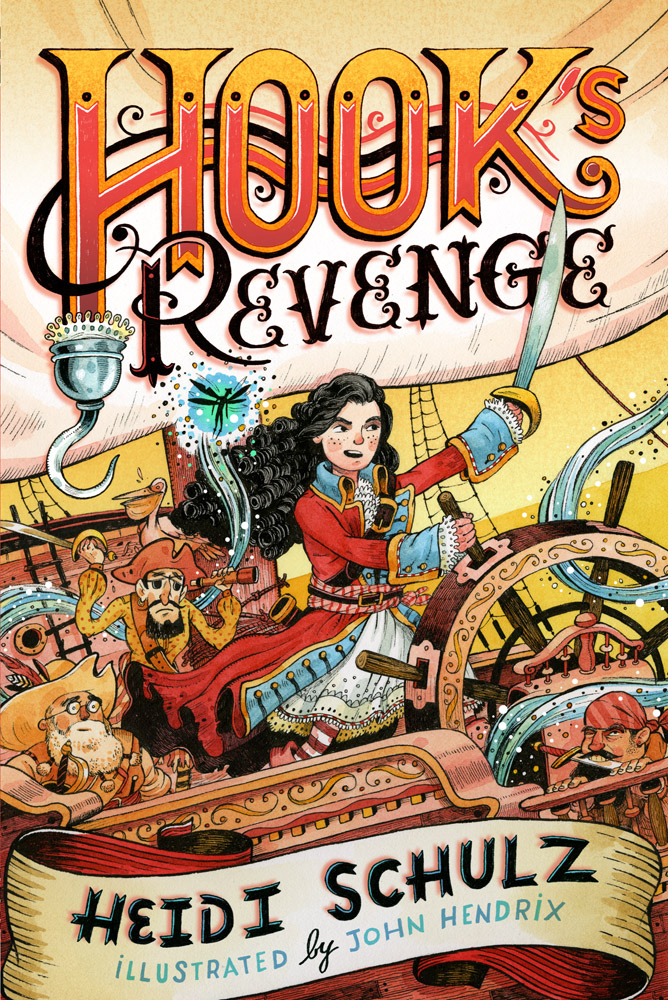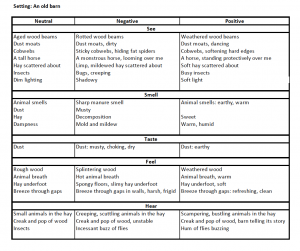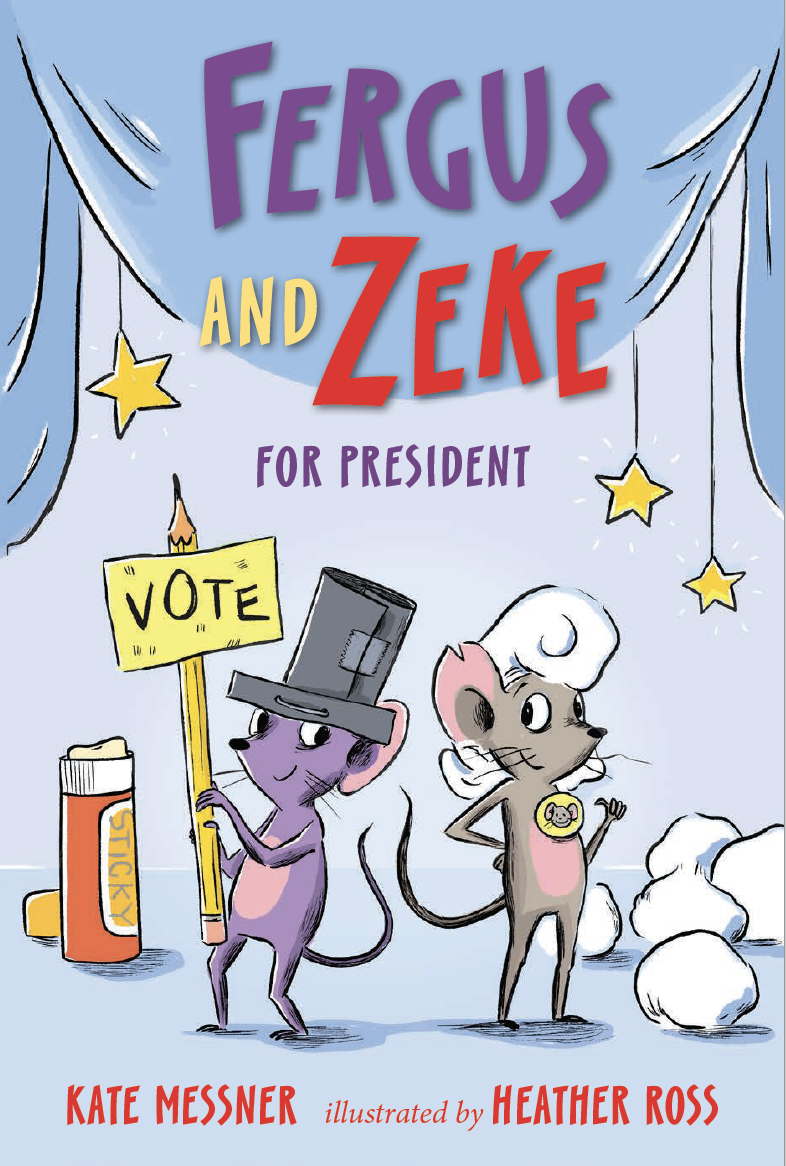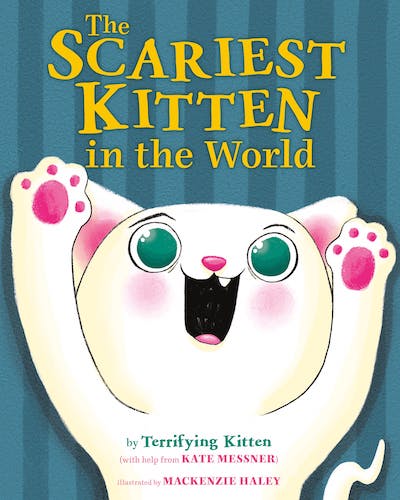Our guest author for today’s Teachers Write quick-write is Heidi Schulz, the author of the New York Times Bestselling Hook’s Revenge, and a sequel,Hook’s Revenge: The Pirate Code, published by Disney-Hyperion. Bloomsbury Kids published her picture book debut,Giraffes Ruin Everything, in August 2016. Her short story for children, The Day the Puddles Stomped Back, can be found in Oregon Reads Aloud, an anthology to benefit S.M.A.R.T. (Start Making A Reader Today).


Setting as a Lens for Character
“Ma cracked the window to let some fresh air in, Momly’s car always smelled like a freshly scrubbed bathtub. Like…clean, but poisonous. Cleanliness was next to godliness, huh? So next to godliness that you might die from it. Maddy and me were used to it, but it irritated Ma every single time she was in the car.”—Patina by Jason Reynolds
Effective settings are important to grounding readers in a scene and helping them to feel truly immersed in a story, but they can convey character attributes. Take a look at the paragraph above. What kinds of things can you guess about the main character, and the relationships she has with those around her from that short selection?
The way a writer chooses to describe a setting can offer great insight into character, and can be an excellent way to follow the old writing advice: Show. Don’t tell.
Take, for example, this selection from Illusive by Emily Lloyd Jones. What information about the main character are you able to glean from this reading?
“Arm in arm, she and Devon emerge into downtown Manhattan. Despite the fact it isn’t yet noon, the sun already beats down on the back of Ciere’s neck. She sucks in lungfuls of hot, humid air, tasting sweat and exhaust. Steam flows up from sewer grates, and people swarm the sidewalks—everyone from the homeless with their blackened teeth and sunken eyes to businessmen with tailored suits and briefcases. Ciere has to dodge several tourists as they shuffle past. She tilts her head back and gazes at the city. The buildings are an odd mix of classical arches, sleek skyscrapers, and the grunge that has taken root in these urban areas like mold in an old bag of bread.”
I love this example because it’s so visceral. Words like “swarm,” “grunge,” and “mold” paint a vivid picture and it is abundantly clear that Cierce does not like the city. This works far better than a neutral description of the city and a line of dialogue from the main character such as, “I really hate the city. It’s so gross and dirty.”
(Also note that in this example, the point of view is not first person. Conveying a character’s feelings through setting description works just as well in close third.)
Now take a look at this selection from Love, Ish by Karen Rivers:
“There are a million billion stars shining through the blackness and it’s totally worth it to be out here even though I can’t sleep. The constellations slide by above me so slowly I can barely see it happening unless I close my eyes for a bit and then open them again. I see three falling stars (which are really just meteors, but it’s prettier to think of them as stars). Tonight, the moon is a crescent and if you follow the end of the crescent, you can see Mars. It’s blurry and so so so so so small. I can’t believe I’ll go there one day. I mean, I know I will, it’s just hard to imagine being that far away, being in a hammock on Mars (in a biome, of course) looking at a blurry Earth.”
Aside from conveying a positive association with space (“shining through the blackness” “prettier to think of them as stars”), there is also a sense of wistfulness conveyed in the description of Mars being so far away, and the thought of one day looking at the Earth from a similar perspective. We gain a lot of insight into this character from this one short description.
One last example from my book Hook’s Revenge.
“A miasma of overripe fish, gun smoke, and unwashed bodies hung in the briny air. Schooners, sloops, frigates, cutters, and many other varieties of ships in various conditions were moored offshore. Sailors swarmed over their surfaces like roaches on leftovers, inspecting rigging and performing repairs. Before her eyes, a brawl broke out on the deck of a twenty-gunner. The air was filled with sounds of the roaring sea, screaming gulls, shouted curses, breaking glass, and breaking bones.
A wide smile grew on the girl’s face. For the first time in her life, Jocelyn felt truly at home.”
Here, I’ve used words and phrases with a typically negative connotation (“swarmed,” “roaches,” “screaming,” “breaking bones”), leading the reader to expect the character to feel negatively, but then I reverse those expectations for comedic effect. Try playing around with this technique in your own work.
Your assignment:
Choose a setting. Make a list, using all your senses, of that place’s attributes. Try to use neutral words/phrases. Then, using that list as a guide, make two more lists, one recasting those neutral descriptions in a positive light; the other, in a negative. Feel free to consult a thesaurus if it helps.
I have created a chart, pictured below, using the example of an old barn.

Now try writing about this place, first from the point of view (either first person or close third) of a character that has a positive association with that place. Then reverse it and write the negative. You do not need to use every item on your list, but try to include multiple senses. See my examples below.
Positive
A sudden cloudburst was all the urging Leah needed to find refuge in the old barn. Inside, it was warm and cozy. Billowy cobwebs draped the beams above, softened all the barn’s hard edges. In the sweet-smelling hay underfoot, Leah heard the bustle of small animals going about their business, while overhead, flies buzzed lazily, caring little for the storm outside. From the shadows, a tall horse, soft and brown, moved slowly toward her and Leah quickly pulled the left-over apple slices from her lunch bag. The mare gently took each piece as offered, her velvety muzzle and warm breath tickling Leah’s palm. Leah hoped it rained all afternoon.
Negative
A sudden cloudburst forced Leah into the old barn. Inside, it was damp and smelled of rot. Spiderwebs hung everywhere, concealing fat spiders that Leah felt certain could drop into her hair at any moment. In the limp, musty hay underfoot, Leah heard the scuttling of rodents and she took a small step back toward the door. From the shadows, a monstrous horse approached. Hands shaking, Leah pulled the left-over apple slices from her lunch bag and tossed them on the ground, hoping to either distract or appease the animal, then ran for the door. She’d rather take her chances in the storm.
Of course, negative and positive associations are among the least complex emotions you can convey. Take a look at your setting again and see if you can describe it in such a way that conveys loneliness, anxiety, contentment, pride, relief, or some other feeling—perhaps something from a character you are currently working on? Post that description in the comments below.





Oh my gosh–I love this lesson. While driving to school to see my 5th graders one morning, the idea of a “Love/Hate” writing project came to me. I wrote one on owning miniature horses–a paragraph on loving them, and a paragraph on not liking them so much. After reading the later, one student said “You don’t really feel that way, do you?” So I knew I’d done a pretty good job. 😉 Word choice was the focus, for sure. Exaggeration was encouraged. The topics students chose were varied and marvelous. One boy, an excellent writer, wrote on chickens. And I had to ask him if he loved having them, or didn’t. After several years, other teachers would hear of this project from siblings of my former 5th graders and ask about it. So much fun. Thanks for the memories!! (Now I teach first and we touch on this, but on a much smaller scale.)
Karla, I have 5th graders, as well, and I can see them loving this exercise. Thank you, Heidi for a great lesson!
You are so welcome, Susan!
That sounds like a fantastic writing exercise, and a great way to flex creative muscles! It’s not easy to convincingly portray feeling that are the opposite of your own. I bet your students learn a lot from you.
Such a great lesson for all writers, thank you, Heidi. I realized yesterday that the setting for my PB bio doesn’t show how much in love my MC is with his surroundings and that the reader needs to experience the river like the MC does. TY. This exercise will really help me.
Good morning Heidi,
Thank you for sharing today. What a great lesson. I can’t wait to use it with my library students. The chart is so helpful.
I decided to write just a short snippet from my current WIP using the positive/negative approach.
My mom is a collector. She has an interest in so many things. Old magazines with their colorful pictures. Newspapers because of her love of history. And dolls. She is so tender with their porcelain bodies and takes care that their hair is combed and kept neat. The calming scent of lavender floats through our house, a welcoming scent after a long day at school.
My mom is a hoarder. Outdated newspapers tower like castle turrents in the corners of the living room. Unread magazines form a moat around her chair. And the dolls, their faces dusty, their clothes dirty. She hums while combing their hair, it’s eerie. I grab the can of lavender scented air freshener upon walking in the house and give the living room a good spray. It’s the only scent strong enough to cover the stench of dust and mold.
I love your examples! Thanks for sharing!
Martha, your library students are so lucky to have you as a writing mentor and initiator. This is wonderful! Do all mothers, of a certain age, cling so tightly to the past? I know mine does. Doesn’t remember a thing about my childhood, but can remember where, when, and how she came to own a particular art piece in her home. Letting go is hard. Thanks for sharing this. I always look forward to your pieces.
Susan
Thank you so much for the kind words. It’s really encouraging.
This is so well done. The contrast between collector and hoarder in each first sentence is striking, and the way you support those positions in the following sentences is great. Mom humming while combing the dolls hair is fantastically creepy!
So glad you enjoyed it. Thank you for the encouragement.
This was a lot of fun and more challenging than I anticipated. It made me think of how two different people might see the same place, so I thought about the difference between how my protagonist and antagonist would see a hiding spot:
After a quick scan of the main floor, I decided that there wasn’t any good place to hide here. The house was completely bare. Upstairs probably wouldn’t be any better. So, I opened the door that led to the basement. The stairs were freshly painted and I doubted that it would be much different from the rest of the house. Pristine. Spotless. Soulless. But I didn’t have a choice, Reece was going to find me for sure if I didn’t disappear quickly.
Downstairs, I noticed there was a half wall surrounding a pool of water. Had I heard my mom called this a cistern before? Surprisingly, the air smelled crisp and clean. The walls were all painted white, but with the lights out, I could only see certain spots where the sun filtered in through tiny windows. I crouched on the opposite side of the half-wall, leaning against the cool slick stones for support. There was a slow dripping sound that, if I weren’t in this predicament, would have sounded melodic and soothing. The kind of sound you could fall asleep to. But soon I heard another sound, too. Footsteps. I pulled my focus inward, so the only thing I could hear was my breath. All I could feel was the cool crisp air. Breathing in. Breathing out. The faint scent of earth and paint. Then I heard the door and I could sense a subtle change in the thickness of the air. A strip of light spread across the wall behind me and I pressed my back harder against the wall keeping me out of sight.
She let out a sigh of exasperation.
“Marisol, I know you’re down there” Her voice echoed as she started down the steps. But then, her footsteps stopped abruptly as a mechanical hum kicked in. Had that startled her?
“Ugh, forget it. I’m not doing this,” she said, just as her footsteps clattered again, this time in a quick light ascent. The door stayed open. She marched outside and headed straight across the field, toward town. I stood on tip-toe to watch her leave through the tiny windows.
I love how your character views the freshly painted and clean stairs as soulless. I imagine she enjoys a bit of chaos and/or the outdoors. Such a cool detail including a cistern in the house. I’ve always wanted to see one. I also appreciate you including scent details. That is a great way to pull a reader into a scene!
Heidi,
Thank you for this quick write lesson. It is perfect for my WIP. I also plan to share this lesson with the teachers at my school.
Take Care!
Jen
I’m riding along as my husband drives through the Grand Tetons and part of Yellowstone today, so my internet is spotty, but I’ll check back in when I can!
Thank you so much for this lesson! I really enjoyed the positive and negative perspective exercise.
Here is a sample from my own writing:
Positive: Sami was 8 and she loved the subway. She loved the feeling of the wind hitting her face and a super fast train passed by.
Negative: Claire hated the subway. It was packed and crowded and loud and messy. She hated the rats, the loud screech of an approaching train, the cattle-like feel of boarding, smelling other people’s sweat.
I think this would be a good way for students to understand how to add detail to a setting and how setting can be an important piece of a characters’ perspective as well! Thanks again!
Loved the line about the smelling other people’s sweat. Great images.
These are great examples! I also love the detail about the sweat (ew!). One thought: instead of telling the reader how the character feels, try showing what they are doing (standing on the platform, fining a seat, looking out the window, etc.) and trusting the rest of the description to convey their emotion. Great job!
Thank you for the suggestion! I’m still working on showing rather than telling.
Thank you Heidi for the lesson. I definitely see possibilities with this in my classroom. I picked a short paragraph from one of my rough drafts to give this a try. My original draft uses the positive paragraph. The character is a 12 year old homeless girl.
Negative –
I ducked into an alley to devour my stolen bread. The stale air wreaked of rot and decay. A viscous film covered most of the stone floor. The darkness of midnight loitered in the corner, waiting for the sun to go down. This gap between buildings was forgotten while the city grew around it. I hoped my pursuer would also forget and continue his search for a bread thief elsewhere.
Positive –
I tiptoed into my sanctuary to savor my spoils. The air at the entrance was sharp, but that kept the other street rats from entering my hideout. I deftly stepped around the sticky stones on the floor, and gracefully tiptoed to the darkest corner. The shadows wrapped around me like a blanket and hid me from prying eyes. I was safe, I was comfortable, and I was about to have a full stomach.
This was a lot of fun, and it really made me think about the impact of my descriptions. Thank you so much for the lesson. I can’t wait to see what my students do with it.
I love this one! I can really see the differences – alley vs sanctuary, the viscous film vs deftly stepping around it.
Nice job. You really nailed it.
Excellent! Your details are spot on. I particularly like the idea of the alley as sanctuary—unexpected to the reader but so true for the character and situation. Thanks for sharing!
Heidi,
Thank you for this lesson. I also have done this with my concurrent enrollment Intro to Writing class, but these directions are much better! I love the chart. A fun thing to do with my students is to have a rubric, and we cut off their names, and the students grade them. Saves me from work, too. Then, we revise. They always comment how hard it would be to grade and appreciate me more. I do love hiking, and so I picked the woods. I still need to work on showing and not just telling.
As I wandered down the trail towards the lake, my shoes padded on the pine needled trail beneath me like spongy tofu. The sun’s rays shot through the trees here and there. Dew melted along the grass and I picked a slender piece of grass and pressed it between my thumbs and blew. A low to middle pitched sound shrilled out and a squirrel darted quickly across the path. The grass lingered earthy sweet between my fingers, but more than anything I could smell the pine trees. Touching a bough as I walked past, I held on for a moment. This was much better than a $20 Yankee candle.
The air was stifling around me as I walked on the dusty trail through the trees. A horse fly kept buzzing around my head, and occasionally touched my calf. Trying to flick it away, my hair caught on a branch. The air smelled pungent of some sort of dead animal, and as I came around the corner, there was the carcass to the right. Moving a branch in the way, spider webs fell across my face, and I could feel the heat from the dry grass on the sides of the trail. The cicadas were deafening, and I wanted to break free and run until I could see some sort of meadow or a road.
These are two more excellent examples! Your line about Yankee Candles made me laugh out loud. What wonderful voice! And, I can honestly say I’ve had both experiences hiking. Your descriptions each took me right to those places. Thank you!
Basement Gathering
Posted on July 19, 2018 by showgem
Setting: a basement
Neutral Negative Positive
See
A good size
Lots of space
Cobwebs
Gnats
Dust bunnies all over the floor
Limited lighting
Unfinished Basement
Old panelling on the wall
Some of it is broken
Only one small couch to sit on.
Not wanting to sit on the floor
Lots of room for everyone
on the floor
Many types of insects in the room
Smell
Damp
Dust
Mildew
Musty
Bugs hanging out in the dust
My allergies are bothering me
Damp and musty
Dust Choking from the smell Damp earthy smell
Taste
Hard to breathe Allergies are kicking in because of the mildew Choking a bit
Feel
Walls are rough The cement floor is damp Feels cold and damp
Bugs all over climbing up walls and on the floor No doorway to the outside Uncomfortable
Hear
People complaining about the place that we are in. Gnats attacking Buzzing flies
Janie, was so excited to invite a bunch of people to her family’s basement for a gathering. She loved the idea that everyone was coming to her house and she knew her basement was big enough for all the people she invited. She was super excited , writing a grocery list of food and snacks to get for everyone. She noticed that there were some bugs in the basement, but she figured that no one would be paying attention to some little bugs. The music would be blasting and she figured the bugs would probably leave due to the blast of the music. It was going to be an awesome night.
I really don’t know Janie that well. She moved here this past year. I have sat with her at lunch
lunch a few times. I was a bit surprised that she was inviting 20 people to her house in her basement. As soon as I got there I noticed the musty smell in the basement. My ears and throat started to feel itchy. I didn’t bring any allergy medicine. I notice that there were bugs all over. I saw some spiders and there were flies and gnats buzzing all over the place. There was a small couch that had enough room for three people. By this time there were 15 people who were mostly standing and talking. Janie brought out some food. I got some water to drink and I had a slice of pizza. The music was blasting, I told Janie that I wasn’t feeling well and I needed to get home. I thanked her for the invite.
At first, I thought your descriptions were poetry. They certainly read that way! Lovely. And what a wonderful contrast between the two characters. You can tell so much about them by the way they each view the basement!
The lake holds these collective memories still today, and it will continue to gather each tale, hold and keep it until someone digs it up from around the fire pit to be scrutinized and shared by the circle. They are the nuggets of lore that have been contributed to over time by those who have come and gone over the many years. Each contribution painted in the perspective of the contributor. Each colored in the circumstance, familial filter, and lens of those who shared their musings around the fire pit. It is this collective memory that muddies the water between truth and myth.
Wow. This is really impactful and so easy to indentify with. Beautiful work.
Thank you, Martha. I appreciate the feedback.
This is beautiful and very stirring! I love the idea of memory as a tangible, physical thing. Thank you.
Thanks, Heidi. That is what I was going for.
I can see how this exercise can really make a scene come to life. I didn’t have time to do this today, but I’m going to try this prompt tomorrow. Thank you!
Hi Heidi,
I enjoyed this exercise because I had to take the time to reflect and think about myself in the setting of a forest. I started with the positive descriptions because those were easier to come up with since most (but certainly not all) of my experiences in the woods have been pleasant. When thinking about the and negative descriptions, I made the woods a darker and more dreary place. I did want to make my character (not for any story I am creating–I am a long way off from doing that) get lost in the woods. So I want the setting to convey a sense of anxiety and lonliness. Here’s a smidge of what I have written so far, drawing on a lot of the negative descriptions.
Somehow, Annie wandered off the trail. Sunlight was fading. Her heart began to pound in her chest. Trees towered over her like monsters. Cold wind snapped at her cheeks. Two large eyes stared at her through the trees, watching. Terrified, Annie ran but her legs couldn’t move that fast. THUD! She hit the ground hard.
This is fairly elementary, so I appreciate any suggestions as to how I can create these feelings of anxiety in this setting. I am not a skilled creative writer but want to work at becoming one.
Thanks for joining Teachers Write today!
I ran to the bookstore and picked up a copy of your book Hook’s Revenge. I can’t wait to read it!
Jane 🙂
What a amazing exercise! Thanks for a different way to look at writing a scene.
This is a story told from the perspective of a lost stuffed animal at the moment the boy lost him.
One minute, my hand felt sunshine, love, boy; the next… bleak…forlorn…forgotten. I was falling through the slats of the unyeilding stone bench. Unseeing people rushing past, jabbing me with their feet. My precious boy, walking step by step beyond my reach. Up, up into the hollow box that makes a sorrowful, slow whistle. His mother is holding one small, precious hand and his other hand… my hand…void. My boy, at that very moment, raises his barren hand and looks confused. Time stood still as he gaped at that pitiful hand, that empty hand that holds my heart. “I’M HERE! I’M HERE!” I scream in my head, as I lay under the cold, harsh bench along with bits of everyday life, left behind, discarded.
I LOVE the idea of this lesson. My kids sometimes have a lot of trouble using their senses in their writing, even when we are just brainstorming. I like this more targeted brainstorming in that they can just list things that might have scents or you are able to touch, etc, first, and then think of ways to describe them. I don’t have a character, but last Sunday checkup Jen suggested I try writing about my son, so I did that here. I have to say, since this is a close-to-life example, the negative one was strange to write, but satisfying when I finished it.
K’s lonely footsteps echoed down the school hallway, piercing the otherwise isolating silence that surrounded him. He turned into a classroom, and the curtains fell behind him, forcefully closing him inside. A mish-mash of tables and desks arranged at varying heights resulted in an off-kilter effect that jarred his senses as he scanned the myriad of dangerous implements designed to replace — or prevent — seating scattered across the room. There were, for example, balls that were quite too big for him to climb and also quite too easy for him to roll off from. In the corner, the disconcerting bubble of a lone fish tank amplified the lingering scent of sterilization, reminiscent of the way time stops in a doctor’s office, but anxiety keeps running. This feeling was not one the toddler could identify, but still, he felt it and shuddered. K approached the fish tank in search of life, but the cold eyes of the fish and the hard touch of the glass held no company for him. He reached for a blue legless chair and attempted to creak it into sitting position, but it did not yield. Resigned, he settled for the scratchy rug beneath the looming whiteboard and took a bite of the stale, hard cookie whose melting chocolate candy bits were staining his fingers.
K’s footsteps sang in anticipation as he pattered down the hallway, turning towards his destination. As he crossed into the classroom, the soft, blue curtains welcomed him inside. He noticed that towards the front of the room, there were just-right tables close to the floor that invited him to draw. Around the room, he saw less chairs and more fun and exciting oddities, such as wobbly stools and round, bouncy balls that were bigger than he was! In the corner, the fish tank bubbled joyfully, reminding him of his mission here. “Fish!” he giggled happily. He reached for a blue seat that was folded up, attempting to release it to its toddler-perfect size, but he didn’t know how to work it and he called out, “Mama! Need help!” His mama hadn’t made it to him from her own classroom yet, where she prepped a few last things to ready the room for the next day with her students. K debated going to get her, but decided to wait, settling for the soft, fuzzy carpet next to the prized fish tank instead. He bit into the sweet, melty cookie and gazed up at his fish friends swimming, utterly satisfied.
I may have missed the characterization bit in the negative one, but it’s about 2am and I read the lesson quickly. Hehe.
Great lesson! I used 2 different characters entering the same scene.
Cam was the first to arrive. He entered the room admiring the stacks of gray boxes, each awaiting their fill of uniforms and gear. Following the numbers until he reached 306, he listened as the footsteps and sneaker squeaks of his teammates poured into the room. Chatter filled the Lysol-scented air while bags and gear thudded to the industrial-gray floor. Cam gripped his lock, spinning the familiar combination, 24-8-32-click. His cleats clattered to the ground as the door sprung open.
“HWISSSSSSS FIVE MINUTES, GENTLEMEN! DON’T BE LATE!” announced Coach. Quickly, boys hustled to change, stuffing day clothes into lockers. SLAM! BANG! CLASH! Cam joined his teammates’ chorus of hoots and jogging footfalls as they approached the dark tunnel leading them to a new season.
__________________________________
Drew and Roger threw open the door announcing their arrival and allowing the chant of “HOO! HOO! HOO” to float out to George, who caught the heavy wood plank before it slammed him outside. He ghosted behind the leaders, shifting his eyes to the cold, industrial gray floor. Lysol stung his nostrils as shadows of muscled, post-puberty boy-men swung under his feet.
“HWISSSSSSS FIVE MINUTES, GENTLEMEN! DON’T BE LATE!” growled Coach. Lockers slammed as teammates scurried to the Cardinal-red door, hyping each other to arrive first to warm-ups. George fumbled the clammy combination lock, willing the numbers to work: 2-16-28-clump. 2-28-16-clump. 28-16-2-click. He let his clothes whisper to the ground, joining a lonely, forgotten sock. Dressed in his practice uniform, George closed stuffed his clothing into the hollow metal box and shut the locker door, then shuffled to the fountain to sip cold water. “GEORGE? YA IN HERE? YOU’RE LATE!” Coach’s voice echoed through the showers.
What a fun assignment! Excited to try this! Thank you for sharing this.